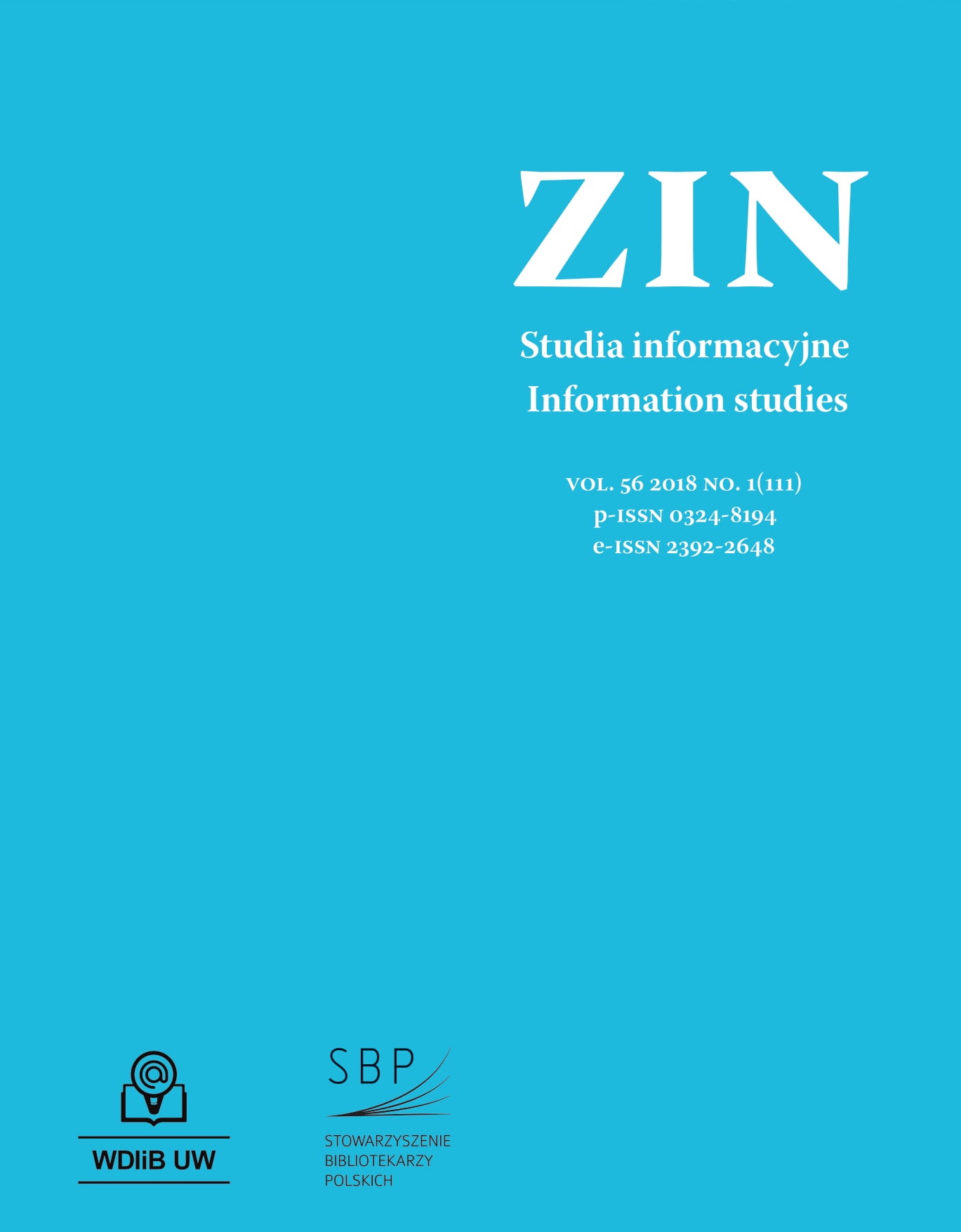Documentation and Information Science: On Some Forgotten Origins of the French Contribution
Documentation and Information Science: On Some Forgotten Origins of the French Contribution
Author(s): Widad Mustafa El HadiSubject(s): Library and Information Science
Published by: Wydawnictwa Uniwersytetu Warszawskiego
Keywords: Auguste Comte; Document theory; Epistemology of information science; Epistemology of knowledge organisation; Eric de Grolier; French encyclopedists; French Enlightenment philosophers; French modernism
Summary/Abstract: PURPOSE/THESIS: This paper presents a review of the French contribution to the epistemology and theory of documentation and information science. It is focused on the authors, theories, and practices that have been neglected, or forgotten by French information specialists. An attempt was made to assess their contribution and influence on information science and the theory of the document. APPROACH/METHODS: The author focused on the analysis of the literature either printed or available as online texts, and proceedings of the ISKO-France conference held in Paris in 2017. RESULTS AND CONCLUSIONS: The review of the French contribution to the epistemology and theory of documentation and information science is carried out according to a triple chronological perspective. The first one goes back in time, as far as the contribution to the development of knowledge organization methods and theories of Enlightenment French philosophers’ and Gabriel Naudé. The second period covers relatively recent history, from the nineteenth to the twentieth century with the birth of the francophone document theoreticians such as the philosopher Auguste Comte and his Broad System of Ordering, and later Suzanne Briet’s view of a document as something (potentially anything) made into a document, offering the view that the word “document” should be used in a technical sense within information science to denote anything regarded as signifying something. The third period is represented by the thriving activities of what we call in France the forerunners among whom I have focused on the specific position of Eric De Grolier for his role in defining and expanding Ranganathan’s categories as well as that of Jean-Claude Gardin, their contribution and their impact on information science with a special focus on knowledge organization. ORIGINALITY/VALUE: The theme of the 4th International Scientific Conference on Information Science in the Age of Change: Innovative Information Services from which this paper is derived implies that speakers would give a state of the art on Innovative Information Service. However, I would like to suggest that talking about the European tradition of information science underpinning the innovation in information services would be worthwhile. It is because this tradition played a central role in developing the connection between modernism and information science, especially in relation to schemes for bibliography and documentation that emerged in the late 19th and early 20th century. The impact of the French tradition and its modernism in documentation and information theory is tremendous, but I chose only a few of these authors, mostly those understudied, because I find it surprising that there is so little reference to them in more recent work.
Journal: Zagadnienia Informacji Naukowej – Studia Informacyjne
- Issue Year: 56/2018
- Issue No: 1 (111)
- Page Range: 7-20
- Page Count: 14
- Language: English

